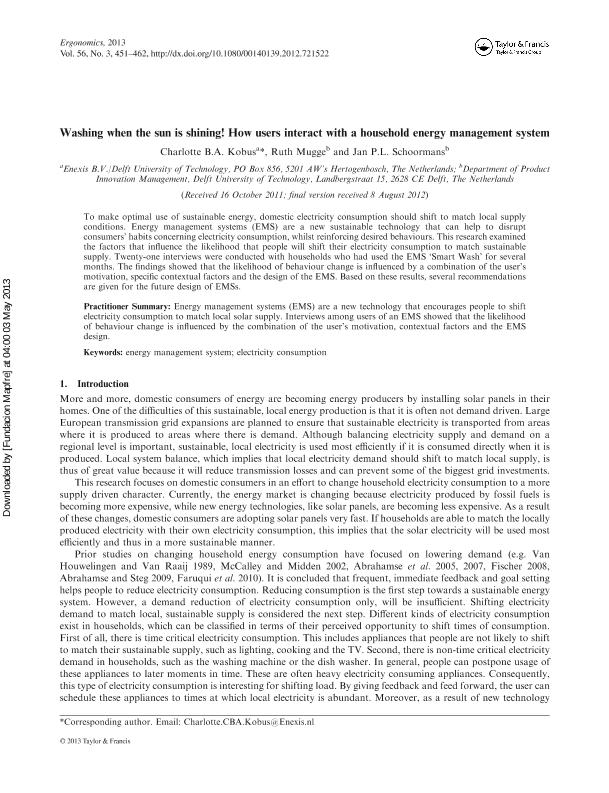Washing when the sun is shining! How users interact with a household energy management system

Contenido multimedia no disponible por derechos de autor o por acceso restringido. Contacte con la institución para más información.
| Tag | 1 | 2 | Value |
|---|---|---|---|
| LDR | 00000cab a2200000 4500 | ||
| 001 | MAP20130014425 | ||
| 003 | MAP | ||
| 005 | 20130506123043.0 | ||
| 008 | 130503e20130304esp|||p |0|||b|spa d | ||
| 040 | $aMAP$bspa$dMAP | ||
| 084 | $a875 | ||
| 100 | 1 | $0MAPA20130005607$aKobus, Charlotte B.A. | |
| 245 | 1 | 0 | $aWashing when the sun is shining! How users interact with a household energy management system$cCharlotte B.A. Kobus, Ruth Mugge, Jan P.L. Schoormans |
| 520 | $aTo make optimal use of sustainable energy, domestic electricity consumption should shift to match local supply conditions. Energy management systems (EMS) are a new sustainable technology that can help to disrupt consumers habits concerning electricity consumption, whilst reinforcing desired behaviours. This research examined the factors that influence the likelihood that people will shift their electricity consumption to match sustainable supply. Twenty-one interviews were conducted with households who had used the EMS Smart Wash for several months. The findings showed that the likelihood of behaviour change is influenced by a combination of the user's motivation, specific contextual factors and the design of the EMS. Based on these results, several recommendations are given for the future design of EMSs. | ||
| 773 | 0 | $wMAP20100019818$tErgonomics : the international journal of research and practice in human factors and ergonomics$dOxon [United Kingdom] : Taylor & Francis, 2010-$x0014-0139$g04/03/2013 Volumen 56 Número 3 - marzo 2013 , P. 451-462 |

